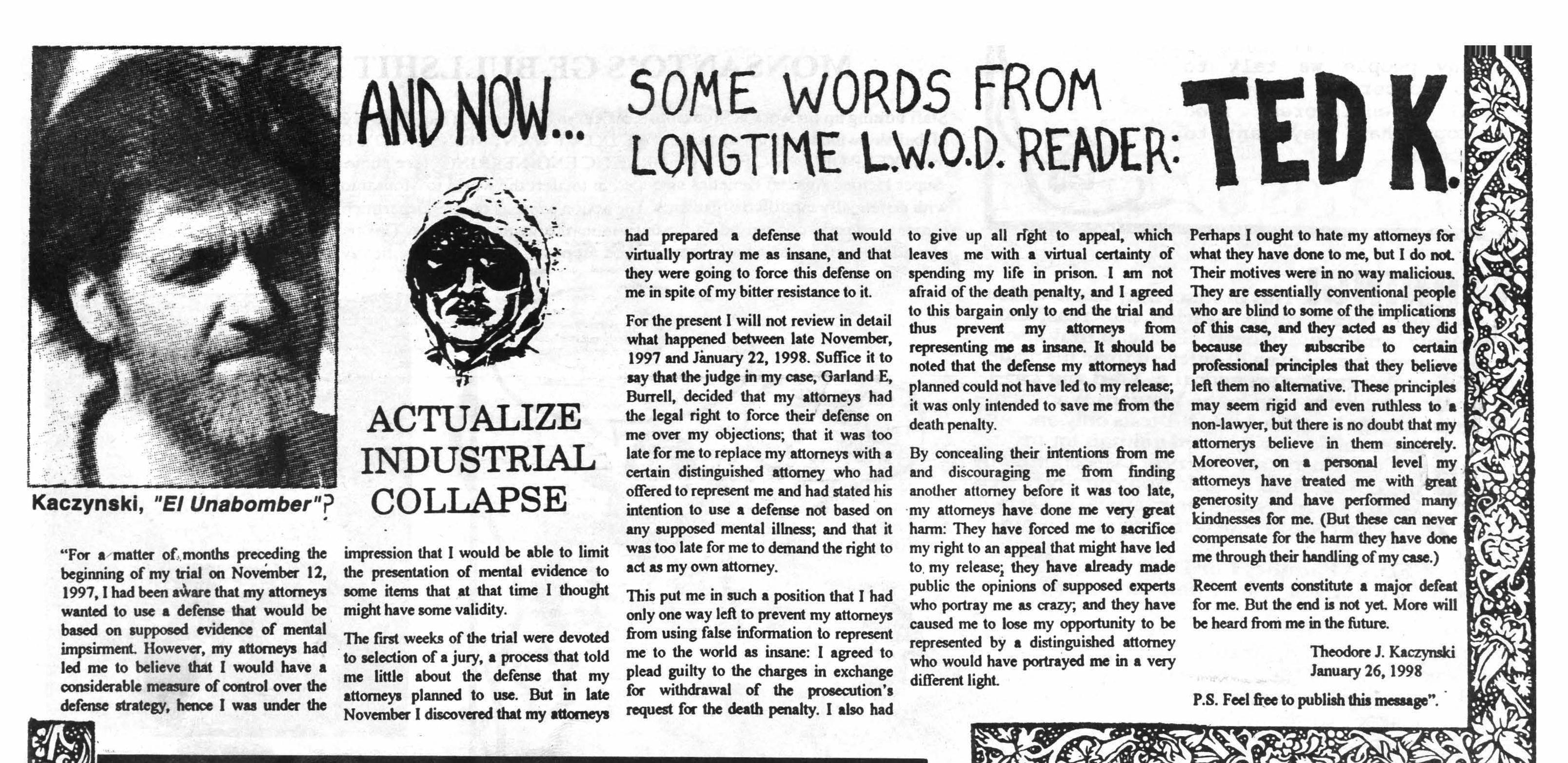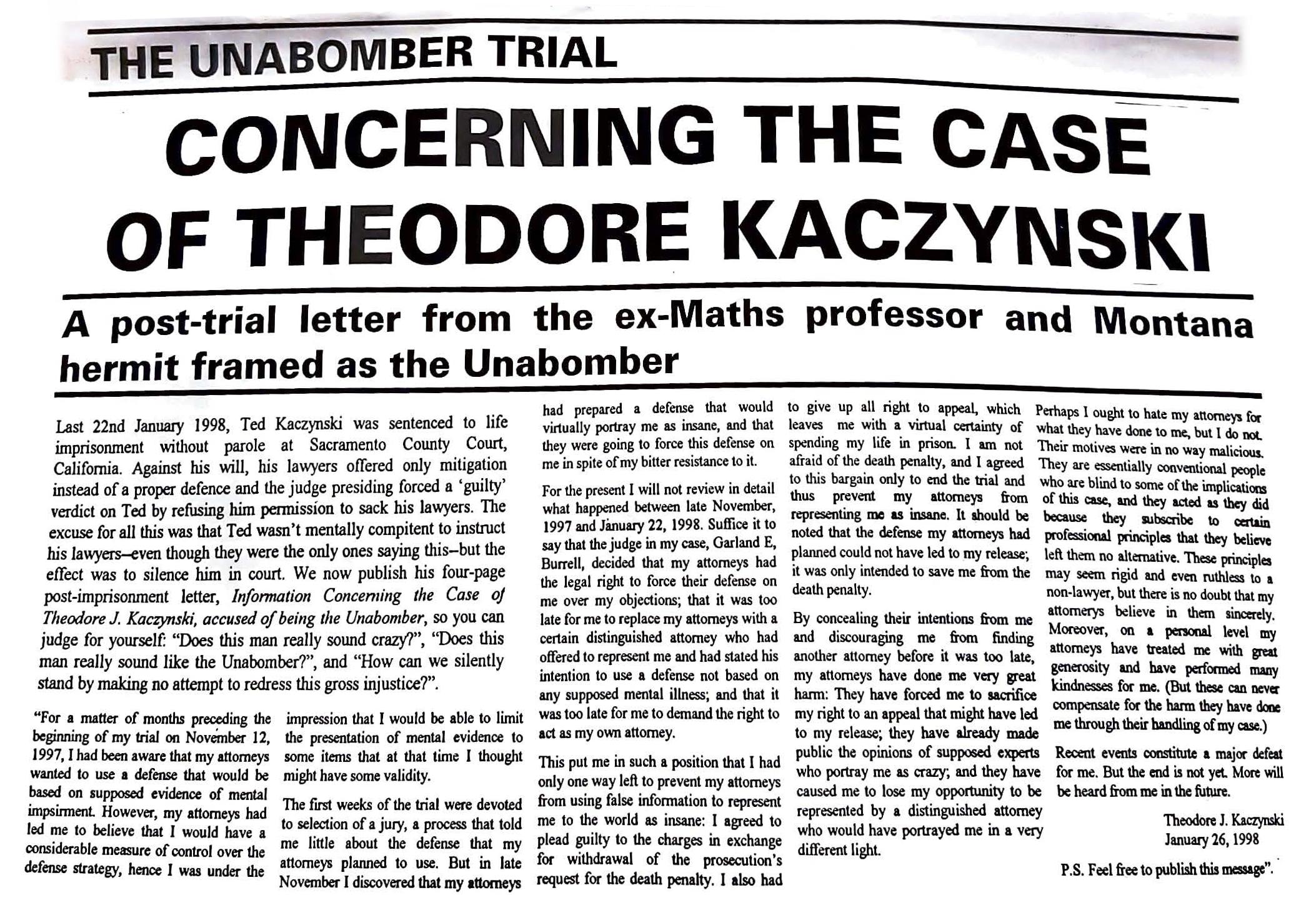Ted Kaczynski
A Statement by Ted K on his Trial Verdict
For a matter of months preceding the beginning of my trial on Nov. 12, 1997, I had been aware that my attorneys wanted to use a defense that would be based on supposed evidence of mental impairment. However, my attorneys had led me to believe that I would have a considerable measure of control over the defense strategy, hence I was under the impression that I would be able to limit the presentation of mental evidence to some items that at that time I thought might have some validity.
The first weeks of the trial were devoted to selection of a jury, a process that told me little about the defense that my attorneys planned to use. But in late November I discovered that my attorneys had prepared a defense that would virtually portray me as insane, and that they were going to force this defense on me in spite of my bitter resistance to it.
For the present I will not review in detail what happened between late November 1997 and January 22, 1998. Suffice it to say that the judge in my case, Garland E. Burell, decided that my attorneys had the legal right to force their defense on me over my objections; that it was too late for me to replace my attorneys with a certain distinguished attorney who had offered to represent me and had stated his intention to use a defense not based on any supposed mental illness; and that it was too late for me to demand the right to act as my own attorney.
This put me in such a position that I had only one way left to prevent my attorneys from using false information to represent me to the world as insane: I agreed to plead guilty to the charges in exchange for withdrawal of the prrosecution's request for the death penalty. I also had to give up al right to appeal, which leaves me with a virtual certain of spending my life in prison. I am not afraid of the death penalty, and I agreed to this bargain only to end the trial and thus prevent my attorneys from representing me as insane. It should be noted that the defense my attorneys had planned could not have led to my release; it was only intended to save me from the death penalty.
By concealing their intentions from me and discouraging me from finding another attorney before it was too late, my attorneys have done me very great harm: they have forced me to sacrifice my right to an appeal that might have led to my release; they have already made public the opinions of supposed experts who portray me as crazy; and they have caused me to lose my opportunity to be represented by a distinguished attorney who would have portrayed me in a very different light.
Perhaps I ought to hate my attorneys for what they have done to me, but I do not. Their motives were in no way malicious. They are essentially conventional people who are blind to some of the implications of this case, and they acted as they did because they subscribe to certain professional principles that they believe left them no alternative. These principles may seem rigid and even ruthless to a non-lawyer, but there is no doubt that my attorneys believe in them sincerely. Moreover, on a personal level my attorneys have treated me with great generosity and have performed many kindnesses for me. (But these can never compensate for the harm they have done me through their handling of my case.)
Recent events constitute a major defeat for me. But the end is not yet. More will be heard from me in the future.
Theodore J. Kaczynski
January 26, 1998
P.s. Feel free to publish this message.


